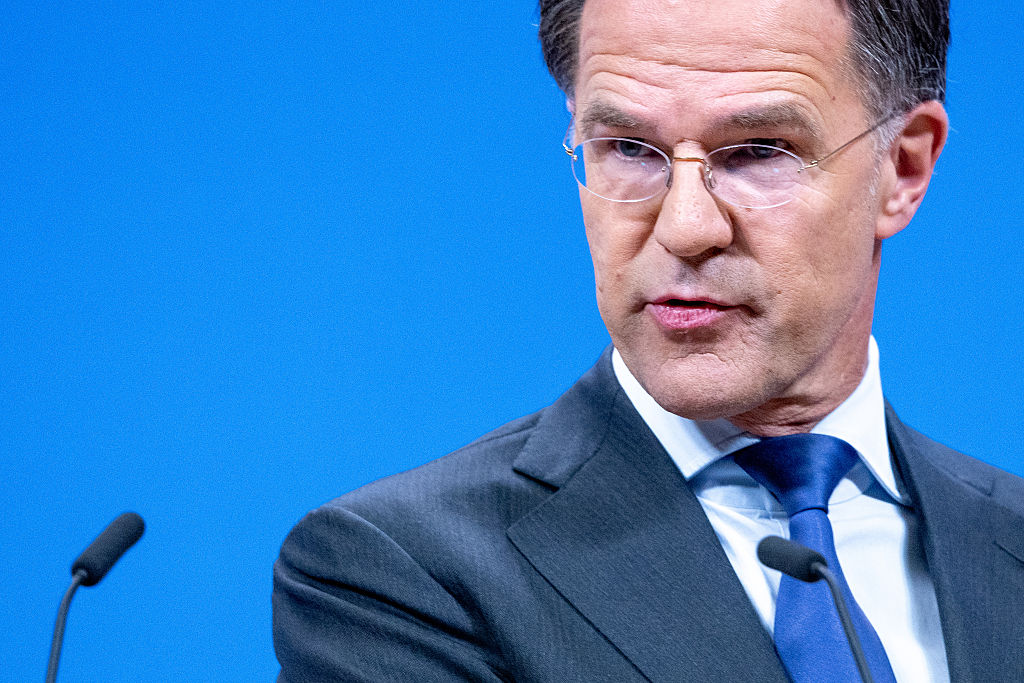“Men more quickly forget the death of their father than the loss of their property,” Machiavelli wrote in his classic treatise, The Prince. In the reductionist caricature style of our times, the old Florentine is best known today for advocating fear over love as the conduit to power, and as an early theorist of what was eventually termed realpolitik. In truth, he was of course a much more sophisticated and principled thinker. But, above all, he combined a practical sense of reality with a deep insight into human psychology. His warning about seizing people’s property, which he singled out for its political implications, bears remembering as Europe discusses appropriating Russia’s frozen assets.
To Machiavelli’s injunction can be added the more practical one of J.M. Keynes four centuries later. In The Economic Consequences of the Peace, published immediately after the First World War, Keynes denounced the financial “Carthaginian peace” imposed by the Versailles treaty on the defeated Germans. His case against the punitive reparations demanded from Berlin was grounded in the economic self-interest of the allies. Impoverishing Germany, he argued, would throw it into turmoil and would put at risk the economic reconstruction of the whole of Europe.
A core part of Keynes’s argument also echoed Machiavelli in foreseeing that forcing the new Weimar Republic into excessive payments would lead to implacable German revanchism which would only undermine Europe’s security going forward. Events proved him right, as the perceived injustice of the Versailles reparations – more than forced disarmament or territorial losses – became the core grievance of the German people against the victors of the First World War, long before Hitler came anywhere near to power.
We face a similar dilemma today with respect to the Russian state funds impounded in European banks since 2022. The context and details may be different than in the past, but fundamentally the key question is whether to take away, by force, the sovereign property of a foreign nation with which we are not actually in state of armed conflict. The form that this forced appropriation might take, and the use to which the funds would be put are important details as well, but secondary. What will matter to Moscow, and indeed to the Russian people – whose money it is, effectively – is the act of pure theft from their national treasury, which is how this will be read in Russia.
The illegality of such a move has been recognised from the start, as have the indirect financial risks. Russian deposits in Western banks, accumulated before the war, amount to some €211 billion held in Europe, and about €300 billion in total. If the West simply “confiscates” them, Russia would likely challenge this in Europe’s own courts, with the law – as it stands – on its side. But more than that, who could ever trust Western banks in the future? A crisis of confidence in the euro could ensue as overseas capital – from East Asia or the Gulf, for example – might start to bypass Western financial institutions. Putin has even welcomed this prospect publicly, stating that the loss of these assets would be a “price worth paying” for the damage it would do to the “robbers” themselves.
To be fair, in his Financial Times op-ed on the subject late last month, Friedrich Merz fully and frankly recognised these difficulties. He’s against seizing the core assets. But he still put forward a plan indirectly to leverage Russia’s money to fund Ukraine through an “interest-free loan” of some €140 billion, underwritten by the EU and guaranteed with the frozen Russian assets. More specifically, the EU would take the cash out of Russia’s accounts and replace it with IOUs (zero interest EU bonds). Technically, the “value” of those Russian assets would not change at the moment of the swap, which is why Western statesmen now insist that it can be done.
The issue is that Moscow would still retain its original claim. Additionally, the diminishing real-terms value of the assets over time, due to inflation, brings extra legal exposure for Europe which complicates intra-allied negotiations over how to share the risk. Ultimately, the whole scheme essentially turns on Kyiv repaying the loan, after the war, from future reparations that Russia is supposed to agree to as part of any peace deal. If Russia won’t agree, it will “lose its rights to the assets”, according to the FT. Regardless how you look at it, the Merz-EU proposal amounts to the same thing: Forcible disposal of Russian property, and, in the end, the R-word: Reparations.
No doubt, there are very good, powerful reasons to seek to tap into Moscow’s immobilised cash pile to fund Ukraine. The principal one is the lack of practical alternatives: Europe can’t cover the costs of the war from its own coffers anymore, and Trump’s America is now out of the financial assistance game. Another reason is to create leverage in the peace negotiations, on behalf of and in conjunction with the Americans. The threat of actually using the Russian cash must be made credible in order to hold weight in Moscow, and the Merz plan helps in that respect.
But the dangers attendant on tampering with the Kremlin’s deposits are also serious. If the Russians call the allies’ bluff and ignore the financial threat, Europe will likely decide to pull the trigger on some version of this plan – out of necessity if nothing else. This will create a new version of the Versailles reparations issue, with the real costs nested in its psychological rather than financial impact on Russia.
Western opinion, focused on the technical details of the loan scheme and on helping Ukraine, tends to dismiss such things. The same was done in 1919, and we know how that went. A subsequent leader of the “defeated” power exploited that grievance to devastating political effect. He found a ready audience among a majority of his country and eventually went to war again. This would not have surprised Machiavelli, and it didn’t surprise Keynes. It shouldn’t surprise us.






Trump is attacking Russia’s global strategy